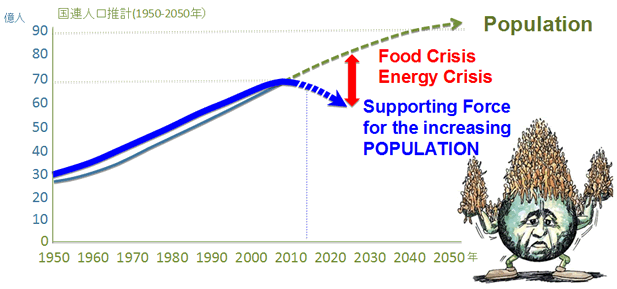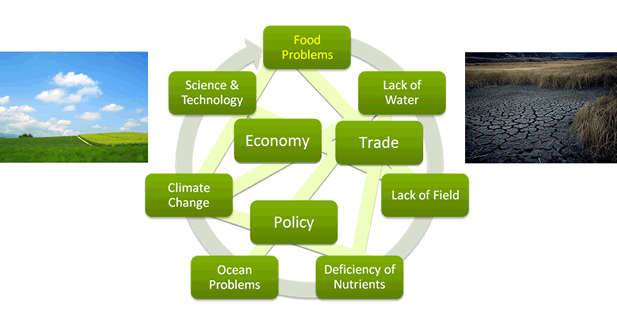Mission of the program
In 2011, world population is over 7 billion
In 2050, it is estimated to be 9.2 billion

The majority of the world′s food is produced through the use of petroleum energy. Currently, food production for supporting at least five billion people relies on petroleum. This clearly indicates that our finite planet has a high-density population, and food production for around seven billion people cannot possibly be achieved through natural farming alone.
We are "eating" 20 liters of oil a day

In other words, for humankind to have a sustainable global environment while living a life that is physically and mentally satisfying, we must face the eventual challenge of "food" on a global scale, which is the source of life, and make radical changes in our food production and energy dependency.
Food and Energy Crisis Growing Social Anxiety

The project aims to foster talent that can usher an age of non-petroleum-dependent food production, free from the ′global crisis in which the majority of food production is dependent on petroleum energy.
Sustainability Analysis
- Systems Classification
- Sustainability metrics and their classification
- Tools for sustainability: technology tools, analytical (mathematical) tools, cleaner chemistry etc.
- Data Issues
- Methods of sustainability analyses for various types of systems
- Decision Making




